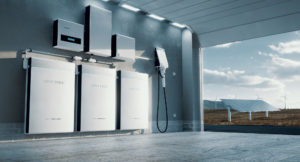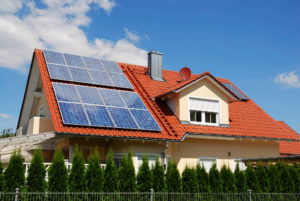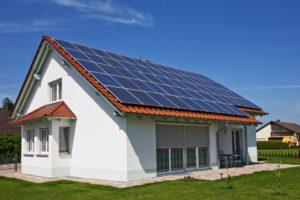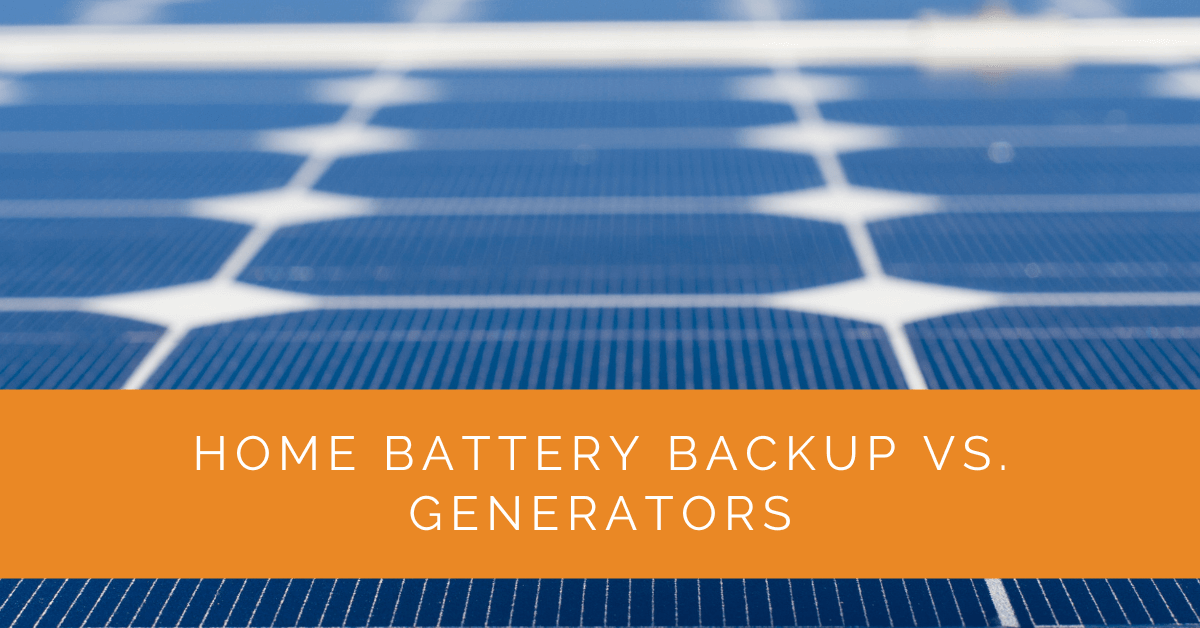In today’s unpredictable world, having a reliable backup power system for your home is crucial. This article will compare two popular options: home battery backup systems and generators. By understanding their features, benefits, and limitations, you can make an informed decision about which solution is best suited for your needs.
Contents
- 1 Key Takeaways
- 2 Understanding Home Battery Backup Systems
- 3 Exploring Home Generators
- 4 Factors to Consider: Home Battery Backup vs. Generators
- 4.1 Power Output and Capacity: Assessing the Energy Needs of Your Home
- 4.2 Upfront Costs and Long-Term Savings: Analyzing the Financial Aspects
- 4.3 Environmental Impact: Comparing the Sustainability of Battery Backup and Generators
- 4.4 Reliability and Maintenance: Examining the Reliability and Upkeep Requirements
- 5 Paired with Solar: Benefits of Solar Battery Systems
- 6 Choosing the Right Backup Power Solution for Your Home
- 7 Case Study: Integrating Home Battery Backup Systems with Solar Panels
- 8 Expert Insights From Our Solar Panel Installers About Home Battery Backup vs. Generators
- 9 Experience Solar Excellence with Us!
- 10 Conclusion
Key Takeaways
- Home battery backup systems and generators are viable options for backup power during outages, with distinct advantages and considerations.
- Power output, upfront costs, environmental impact, and long-term savings should be carefully evaluated when choosing between battery backup systems and generators.
- Integrating solar panels with a battery backup system offers additional benefits, including increased resilience, reduced reliance on the grid, and potential long-term cost savings.
Understanding Home Battery Backup Systems
The Power and Benefits of Home Battery Backup Systems
Home battery backup systems have revolutionized the way homeowners deal with power outages. These systems consist of batteries that store energy, typically generated by solar panels or the grid, and provide a seamless power supply during outages. The benefits of home battery backup systems are extensive:
- Energy Independence: Home battery backup systems offer homeowners greater independence from the grid by allowing them to generate, store, and utilize their electricity. This reduces reliance on utility companies and provides peace of mind during extended outages or emergencies.
- Maximizing Solar Energy: Home battery backup systems maximize solar energy utilization for homes equipped with solar panels. Excess solar power generated during the day can be stored in the batteries and used during nighttime or when the sun is not shining, ensuring efficient use of clean, renewable energy.
- Time-of-Use Optimization: Home battery backup systems enable homeowners to use time-of-use electricity pricing. Homeowners can save on electricity costs and optimize their energy consumption by storing electricity when rates are low and utilizing it when rates are higher.
- Seamless Power Transitions: Home battery backup systems provide instantaneous power without interruption when the power goes out. This means critical appliances and systems can continue operating seamlessly, maintaining comfort, security, and essential functions within the home.
- Grid Support: Home battery backup systems can support the electrical grid in certain regions. During peak demand periods, homeowners can discharge stored energy back into the grid, reducing strain on the system and potentially earning financial incentives or credits.
Exploring Different Types of Home Battery Backup Systems and Their Features
Home battery backup systems come in various types, each with features and capabilities. Some common types include:
- Lead-Acid Batteries: These batteries are known for their reliability and affordability. They are suitable for backup power applications and have been widely used for many years. However, lead-acid batteries require regular maintenance and have limited cycle life and depth of discharge.
- Lithium-Ion Batteries: Lithium-ion batteries are becoming increasingly popular due to their high energy density, longer cycle life, and deep discharge capabilities. They are lightweight, compact, and require minimal maintenance. Lithium-ion batteries are preferred by many homeowners seeking efficient and reliable backup power solutions.
- Flow Batteries: Flow batteries store energy in liquid electrolytes contained in separate tanks. They offer scalability, long cycle life, and the ability to charge and discharge simultaneously. Flow batteries are ideal for larger-scale applications or situations requiring longer backup power durations.
When choosing a home battery backup system, factors such as capacity, efficiency, warranty, and compatibility with existing solar or electrical systems should be considered. Consulting with a professional installer can help determine the most suitable battery backup system for specific energy requirements and goals.

Exploring Home Generators
Home Generators: A Reliable Source of Backup Power
Home generators are a popular choice for backup power, providing homeowners with a reliable source of electricity during outages. Unlike battery backup systems, generators produce electricity through an internal combustion engine. They come in different types and sizes, each offering unique advantages and considerations.
Understanding the Different Types of Home Generators and Their Advantages
- Gas-Powered Generators: Gas-powered generators are the most common type used in residential applications. They are affordable, widely available, and can provide high power output. Gas-powered generators are fueled by gasoline or propane, offering versatility in fuel sources. They are relatively easy to operate and maintain, making them a popular choice for homeowners.
- Diesel-Powered Generators: Diesel-powered generators are known for fuel efficiency and longer runtimes. They are more fuel-efficient than gas-powered generators and ideal for situations requiring extended backup power. Diesel generators often have larger power capacities, making them suitable for larger homes or commercial applications. However, they tend to be larger, more expensive, and require professional installation.
- Renewable Energy Generators: Renewable energy generators, such as solar-powered or wind-powered systems, provide clean and sustainable backup power. Solar generators harness sunlight through photovoltaic panels, while wind generators utilize wind turbines to generate electricity. These generators offer eco-friendly options for backup power, although their power output may be lower than traditional generators.
Factors such as power output, fuel source availability, noise level, maintenance requirements, and compatibility with electrical systems should be considered when selecting a home generator. It is crucial to consult with a generator specialist to ensure the generator’s capacity meets the specific needs of the home and the desired appliances and systems to be powered during outages.

Factors to Consider: Home Battery Backup vs. Generators
Power Output and Capacity: Assessing the Energy Needs of Your Home
One important factor to consider when deciding between a home battery backup system and a generator is the power output and capacity required to meet your home’s energy needs. Assessing the wattage of essential appliances, lighting, and other loads will help determine the necessary power capacity of the backup system. Home battery backup systems typically provide a limited power output, while generators can offer higher power capacities to accommodate more significant loads.
Upfront Costs and Long-Term Savings: Analyzing the Financial Aspects
Upfront costs and long-term savings are significant considerations when comparing home battery backup systems and generators. Home battery backup systems often have higher upfront costs due to the price of batteries and installation. However, they can provide long-term savings by reducing reliance on the grid and lowering electricity bills, especially when paired with solar panels. On the other hand, generators generally have lower upfront costs but come with ongoing expenses for fuel, maintenance, and repairs. Assessing the financial aspects will help determine the most cost-effective and financially viable option for your specific needs.
Environmental Impact: Comparing the Sustainability of Battery Backup and Generators
The environmental impact is an essential factor to consider when evaluating home battery backup systems and generators. Home battery backup systems, especially solar panels, provide a clean and sustainable backup power solution. They rely on stored energy and renewable sources, reducing carbon emissions and minimizing dependence on fossil fuels. In contrast, traditional generators, particularly those powered by gasoline or diesel, emit pollutants and contribute to air and noise pollution. Renewable energy generators, such as solar or wind-powered options, offer an even greener alternative, producing electricity without harmful emissions. By considering the environmental impact, you can make an environmentally conscious choice that aligns with your sustainability goals.
Reliability and Maintenance: Examining the Reliability and Upkeep Requirements
Reliability and maintenance are critical factors in ensuring that your backup power system operates effectively when needed. Home battery backup systems offer reliable performance with instantaneous power availability during outages. They require minimal maintenance, usually limited to periodic inspections and battery replacements after several years. On the other hand, generators require more regular maintenance, including fuel refills, oil changes, and routine servicing. Generators must also be tested and run periodically to ensure their emergency readiness. By understanding each option’s reliability and maintenance requirements, you can choose a backup power system that suits your lifestyle and maintenance preferences.

Paired with Solar: Benefits of Solar Battery Systems
Combining Solar Panels with Battery Backup: Harnessing the Power of the Sun
Integrating solar panels with a home battery backup system offers many benefits. Solar panels capture sunlight and convert it into electricity, which can be used to power your home and charge the batteries simultaneously. Excess solar energy generated during the day is stored in the batteries, ensuring a continuous power supply during nighttime or when the grid is down. Solar battery systems provide a sustainable and efficient backup power solution by harnessing the sun’s power.
Understanding the Integration of Solar Panels and Home Battery Backup Systems
TIntegratingsolar panels and home battery backup systems create a comprehensive and autonomous home energy system. Solar panels generate electricity during daylight hours, powering your home’s appliances and charging the batteries simultaneously. The excess energy stored in the batteries becomes readily available during power outages, ensuring uninterrupted power supply to critical loads. This integration allows homeowners to make the most of their solar energy investment, reduce reliance on the grid, and have greater control over their energy usage.
Advantages of Solar Battery Systems in Terms of Cost Savings and Resilience
Solar battery systems offer various advantages, including cost savings and enhanced resilience. By pairing solar panels with a battery backup system, homeowners can reduce their reliance on the grid and lower their electricity bills. During periods of peak demand or when utility rates are higher, stored solar energy can be utilized, reducing the need to purchase electricity at elevated prices. Solar battery systems also provide greater resilience by allowing homeowners to maintain power supply during extended outages or emergencies, ensuring that critical appliances and systems remain functional. Moreover, with net metering and feed-in tariff programs, excess solar energy can be fed back into the grid, offsetting costs and potentially earning financial incentives. Homeowners can adopt solar battery systems as their backup power solution by considering the cost savings and resilience advantages.

Choosing the Right Backup Power Solution for Your Home
Assessing Your Energy Needs: Determining the Optimal Backup Power System
To choose the right backup power solution, it’s crucial to assess your energy needs accurately. Consider the essential appliances, lighting, and systems that must be powered during outages. Evaluate their wattage requirements and estimate the duration of backup power required. This assessment will help determine the optimal backup power system for your energy demands.
Considering Factors such as Power Output, Duration, and Load Capacity
Factors such as power output, duration, and load capacity should be considered when evaluating backup power systems. Compare the power output of different options to ensure it is sufficient to operate critical loads in your home. Consider the duration of backup power required, whether for short outages or extended periods. Assess the load capacity of the backup power system to ensure it can handle the simultaneous operation of essential appliances and systems. By considering these factors, you can choose a backup power solution that meets the specific requirements of your home.
Consulting with Professionals: Seeking Expert Advice for Backup Power Solutions
It’s highly recommended to consult with professionals, such as solar installers or generator experts when choosing the right backup power solution for your home. These experts can assess your energy needs, evaluate your electrical system, and provide expert recommendations based on their experience and knowledge. They can guide you through selecting the most suitable backup power system, considering factors such as power requirements, compatibility, installation considerations, and maintenance. Their expertise will ensure you make an informed decision and have a reliable backup power system tailored to your seeds.
Case Study: Integrating Home Battery Backup Systems with Solar Panels
Background
At Solar Panels Network USA, our commitment to sustainable energy solutions drives us to explore and implement innovative technologies. In this case study, we examine a residential project where we integrated home battery backup systems with solar panels to provide a reliable and eco-friendly backup power solution.
Project Overview
The project involved a single-family home located in an area prone to frequent power outages. The homeowners sought a solution that would ensure uninterrupted power supply, maximize the use of solar energy, and reduce their dependence on the grid. After a thorough assessment, we proposed integrating a home battery backup system with their existing solar panel installation.
Implementation
System Design and Installation
Our team began by evaluating the home’s energy needs, focusing on essential appliances and systems that required backup power. We designed a system that included a lithium-ion battery backup with a capacity of 10 kWh, paired with the existing 6 kW solar panel array.
Energy Storage and Management
The lithium-ion battery was chosen for its high energy density, long cycle life, and efficiency. It was installed in a location with optimal ventilation to ensure safe and efficient operation. The battery management system (BMS) was configured to prioritize energy storage during daylight hours and discharge during nighttime or outages.
Seamless Integration with Solar Panels
We integrated the battery backup system with the home’s solar panels using an advanced inverter system. This setup allowed for efficient conversion of DC power from the solar panels to AC power for home use. Excess solar energy generated during the day was stored in the battery, ensuring a steady power supply during non-sunlight hours.
Monitoring and Optimization
A comprehensive monitoring system was installed to provide real-time data on energy production, storage levels, and consumption. This system enabled the homeowners to track their energy usage and optimize the performance of their solar and battery setup.
Results
Uninterrupted Power Supply
The integration of the battery backup system ensured that the homeowners experienced uninterrupted power during outages. Critical appliances, including refrigerators, heating systems, and security devices, remained operational, providing peace of mind and enhanced safety.
Energy Independence and Cost Savings
The homeowners significantly reduced their reliance on grid electricity. By utilizing stored solar energy during peak demand periods, they achieved substantial savings on their electricity bills. Additionally, the system’s ability to discharge energy back into the grid during high-demand times offered potential financial incentives.
Environmental Benefits
The project contributed to environmental sustainability by reducing the home’s carbon footprint. The reliance on clean solar energy and efficient battery storage minimized greenhouse gas emissions, aligning with the homeowners’ commitment to eco-friendly living.
Enhanced Resilience
The integrated system provided enhanced resilience against power outages and grid failures. The seamless transition from grid power to battery backup ensured continuous operation of essential systems, making the home more resilient to unexpected disruptions.
Summary
Our project demonstrated the effectiveness of integrating home battery backup systems with solar panels in providing reliable and sustainable backup power solutions. The homeowners benefited from uninterrupted power supply, energy independence, cost savings, and environmental sustainability. This case study highlights the potential of advanced energy storage and management technologies in creating resilient and eco-friendly homes. At Solar Panels Network USA, we continue to innovate and implement solutions that empower homeowners to harness the full potential of solar energy and achieve greater energy independence.
Expert Insights From Our Solar Panel Installers About Home Battery Backup vs. Generators
Home battery backup systems are a game-changer for energy independence. They offer seamless power transitions during outages and maximize the benefits of solar energy, making them an excellent choice for homeowners.
Senior Solar Installer
Generators provide high power output and reliability, especially for longer runtimes. However, the environmental impact and ongoing maintenance costs are significant factors to consider.
Renewable Energy Specialist
Integrating solar panels with battery backup systems not only reduces electricity bills but also enhances resilience during power outages. This combination is a sustainable and cost-effective solution for modern homes.
Lead Solar Technician
Experience Solar Excellence with Us!
Trust in Solar Panels Network USA, where our seasoned experts deliver top-quality solar solutions for homes and businesses nationwide. With a legacy of countless successful installations and a commitment to sustainable energy, we’re your reliable partner in the solar journey. Ready for a brighter, eco-friendly future? Call us now at (855) 427-0058 and harness the power of the sun!
Conclusion
Choosing between a home battery backup system and a generator requires careful consideration. Regarding backup power for your home, Home battery backup systems offer energy independence, maximize solar energy usage, and provide seamless power transitions. On the other hand, generators provide high power output and longer runtimes, ensuring reliable backup power. Integrating solar panels with a home battery backup system offers the benefits of clean energy utilization, cost savings, and enhanced resilience. Assessing factors such as power output, upfront costs, environmental impact, and long-term savings will help determine your home’s-optimal backup power solution. Whether you opt for a home battery backup system or a generator, consulting with professionals will ensure you choose the right backup power solution that meets your specific energy needs and provides a reliable power supply during outages.
About the Author
Solar Panels Network USA stands at the forefront of solar energy solutions, driven by a team of seasoned solar engineers and energy consultants. With over decades of experience in delivering high-quality solar installations and maintenance, we are committed to promoting sustainable energy through customer-centric, tailored solutions. Our articles reflect this commitment, crafted collaboratively by experts to provide accurate, up-to-date insights into solar technology, ensuring our readers are well-informed and empowered in their solar energy decisions.

